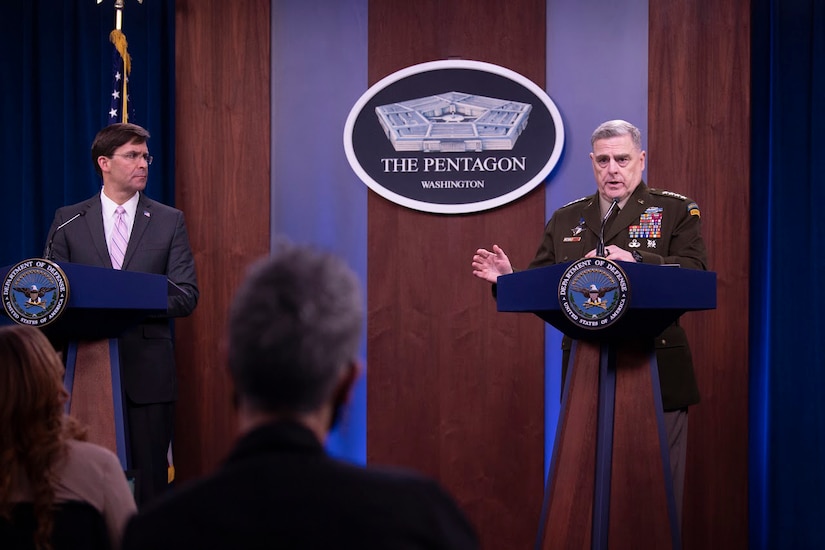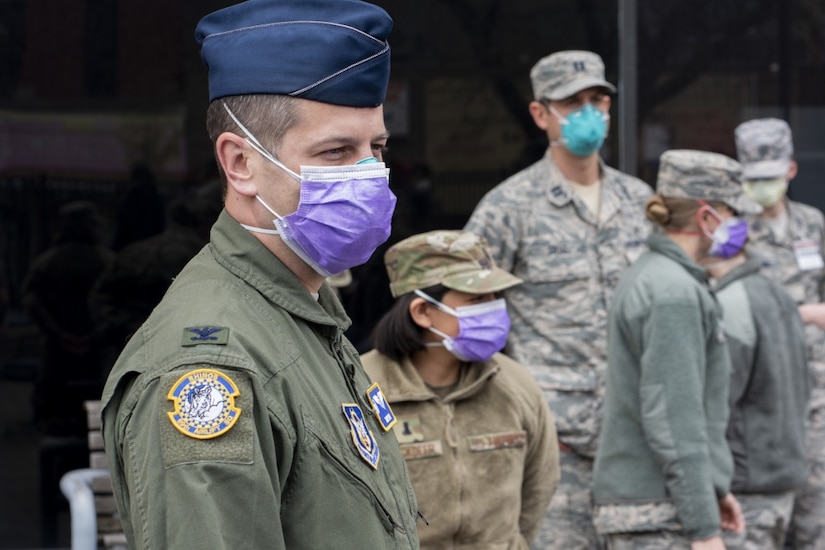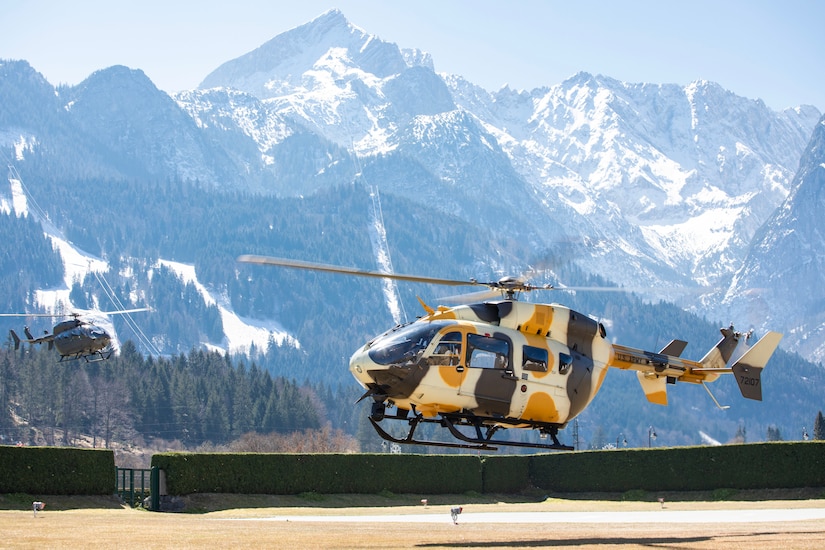April 14, 2020 | BY David Vergun , DOD News
Even as the Defense Department supports the
whole-of-government response to the COVID-19 pandemic, it continues its vital
national security missions, Defense Secretary Dr. Mark T. Esper said.
Esper and Army Gen. Mark A. Milley, chairman of the Joint
Chiefs of Staff, held a Pentagon news conference today on DOD's support for the
nation's COVID-19 response. Esper also gave examples of some of the security
missions DOD has undertaken, including:
- Conducting counterterrorism missions in Africa, the Middle East and Afghanistan;
- Conducting freedom of navigation operations around the world;
- Monitoring North Korean weapons tests;
- Improving the U.S. defensive posture in Iraq;
- Escorting Russian bombers out of U.S. airspace;
- Deterring Iran's aggressive behavior;
- Working with Afghan security forces and Operation Resolute Support partners in Afghanistan;
- Continuing enhanced counternarcotics operations in the U.S. Southern Command area of responsibility;
- Working with NATO allies in Europe; and
- Continuing to defend U.S. interests in space.
And last month, the Space Force launched its first satellite
into orbit, Esper noted.
Regarding North Korean weapons tests, Milley said the
intelligence analysis of their recent missile launches would take a few days,
but the tests were short-range and not particularly provocative or threatening.
Regarding COVID-19, Milley said there are going to be a lot
of lessons learned, and a comprehensive after-action review will follow. It
won't be business as usual after the pandemic, the chairman said.
"There are countries out there in states that are very
fragile that are in various states of civil war and have violence internal to
their societies," he said. "There's significant stress as a result of
the COVID-19 virus on the internal politics of other countries. There's a
significant stress on their economies, on resources. There's risk of
instability, So, no, it's not going to be business as usual. We've got to take
a hard look at how we, the Department of Defense, conduct operations in the
future."









